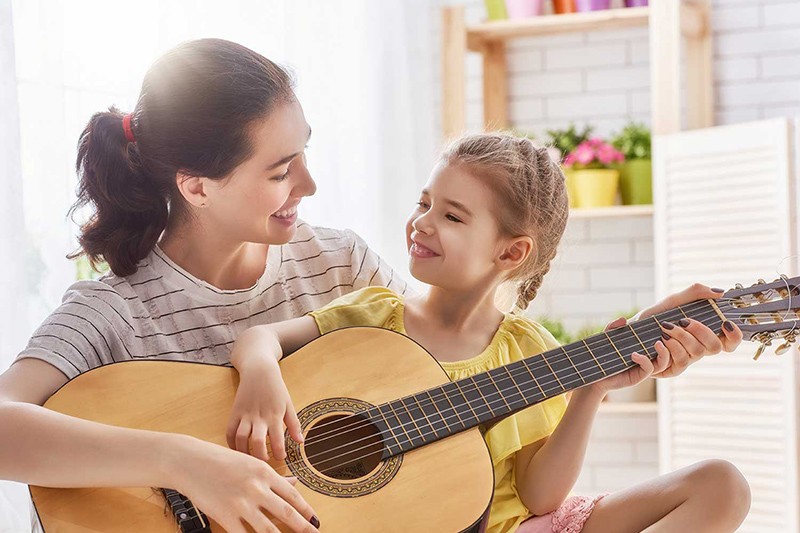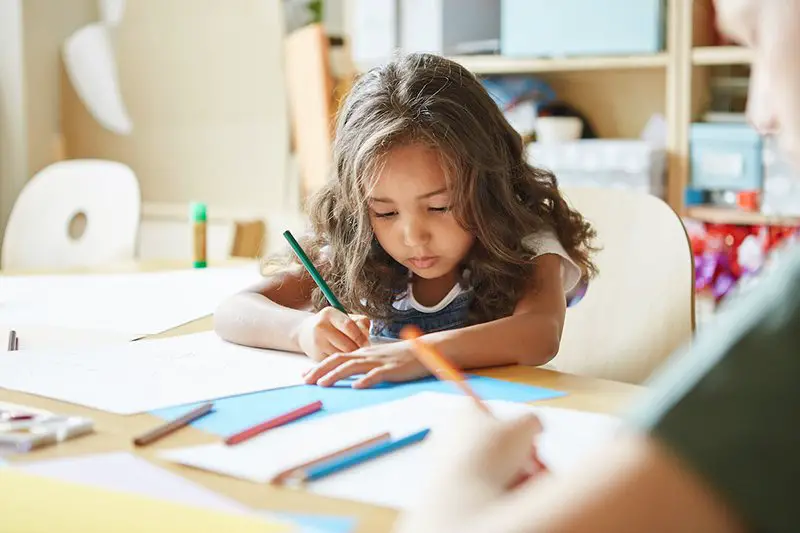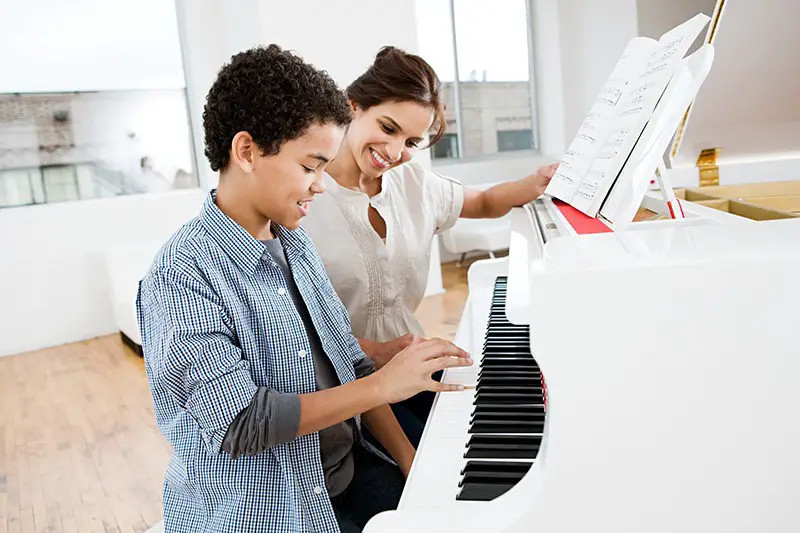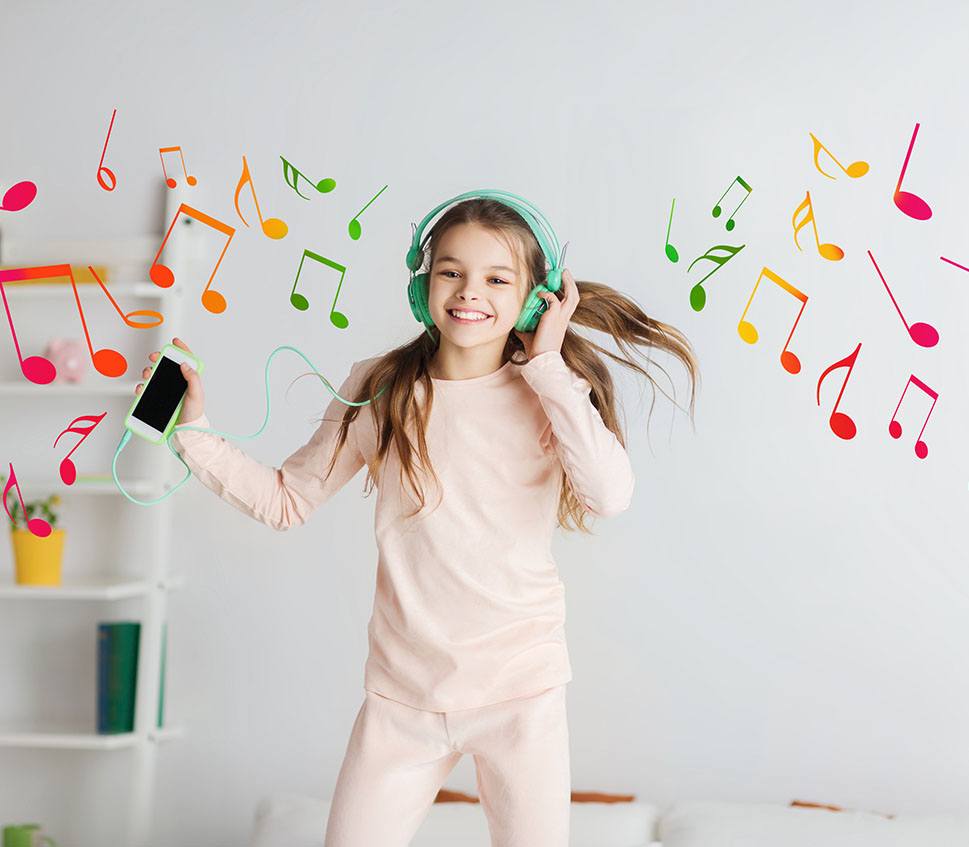Music can be so much more than just a song on the radio. It can help create a fun activity for families, whether it is having a dance party in the kitchen, or belting out a favorite song on a CD and singing it together as a family.
If children are exposed to music at a young age, they can learn sounds and meanings of words. By dancing, they can show off their self-expression and channel their happiness with music. By playing a musical instrument or singing, they can further the connections within their brain development and help them socially connect with others.
Contents
Better Development for Kids
Research shows that music can help language development from age two through age nine. Even if a song is connected to new information, this can help a child process and retain this information faster than before. While language can better develop while learning music at a young age, it can also lead to more social and verbal skills of children.
Research has shown that a child’s IQ can go up if they take singing lessons or learn a musical instrument such a guitar at a young age. Children who learn musical instruments at a young age have to use more of their brain to learn music, which can further advance their brain development as compared to other children who are not involved with music at a young age.
For example, if learning a musical instrument would require a child to use visual cues, they can apply this to more effectively solving problems such as math or even computers.
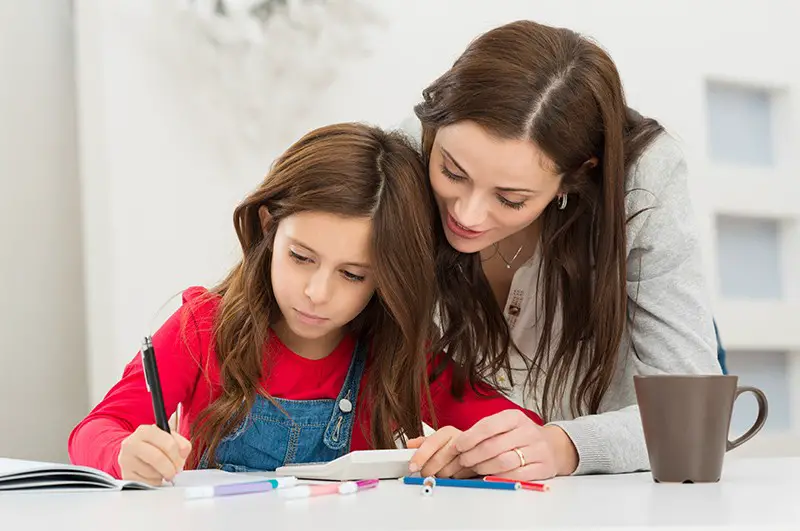
Better Test Performance
Outstanding elementary school music programs can help students score higher in English and Math standardized tests as compared to elementary school music programs that were low quality, irrespective of socioeconomic status. Memory can also improve in these students as well compared to those in lower quality music programs.
Music Can Help Parents With The Little Things
Learning something as simple as the days of the week for younger children can be difficult. But when put to a familiar song like “The Addams Family” with even some clapping or snapping, it can help children learn this basic concept.
Music and movement go together in helping younger children learn important skills that they would need, like self-regulation. Self-regulation is viewed by having a young child pay more attention by making a good choice and behaving well. Action rhymes and finger play books can play a significant role in teaching a child basic skills like “Head, Shoulders, Knees, and Toes” to learn parts of the body, or “The Wheels on the Bus” to learn basic movements with this popular song.
Other little things that parents could do with their young children is play freeze dance to help with self-control, or try a music map, where a child draws something related to how the music makes them feel. Having a marching band parade with wooden spoons to conduct the music or bang on plastic instruments can help parents and children have fun to familiar songs.
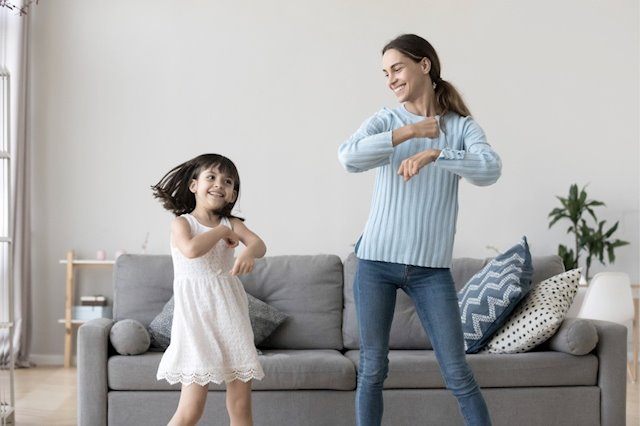
Why Parents and Children Should Dance Together
Parents can help their children learn the benefits of dance at home, especially for younger children. Having children exposed to many different genres of music and music videos can help them not only learn basic concepts, but also show children that parents can have fun dancing too!
There is not any right or wrong way to dance. By showing children that dancing is fun, parents can help influence their children even with silly dance moves. Learning specific dances like the “Hokey Pokey”, “Chicken Dance”, or “Ring Around the Rosie” can help younger children in many ways. These dances help break down individual movements for younger children and essentially improve their listening and coordination skills, and also their memory.
Children can feel inspired when they are dancing by adding props like guitar toys, microphones, or even dressing up to make the experience more enjoyable. One of the greatest benefits of dancing to music at a young age for children is to help them express their emotions. If a strong emotion such as frustration is present, a song can help a younger child calm down and feel better.
What Parents Can Do
Parents can encourage music in the home for their children. Parents can promote dancing, singing, and learning musical instruments for their child. Also, parents can even sign up for family music classes in their communities, like with Music Together, where they offer different types of classes for different ages of children and one class as a family altogether. Other programs like Kindermusik is a well-known program to help younger children better connect to music from birth to age seven.
Parents can also monitor and become familiar with online resources that children can use for music. Many good sources can be found on YouTube and other Google searches for educational music videos and ways to learn how to play a musical instrument or take vocal lessons.
Find out more about online lessons by clicking on these links for the guitar, the piano, the ukulele and singing.
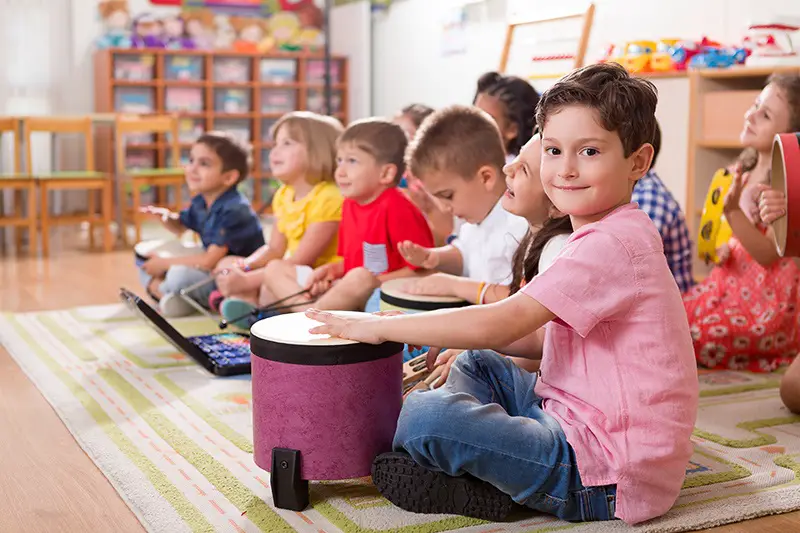
The Best Part About Music for Parents and Kids
One of the best parts about parents and children sharing music is the bond that they will create. Parents are more likely to have close relationships with their children if they listen to music together, even as children get older. Especially when children are teenagers, this bond can further grow with the influence of music. In addition, teenagers can have a great influence on music their parents like, as hearing a teenager’s music can help a parent enjoy this music more over time.
This bond through music is one of the greatest bonds a parent can share with their child. If parents can actively listen to music with their children, they can better connect with them on many levels and build a closer and better relationship. Whether it’s singing, dancing, or playing musical instruments together, parents can be role models for children to show them that music is important and beneficial to them in many ways.

